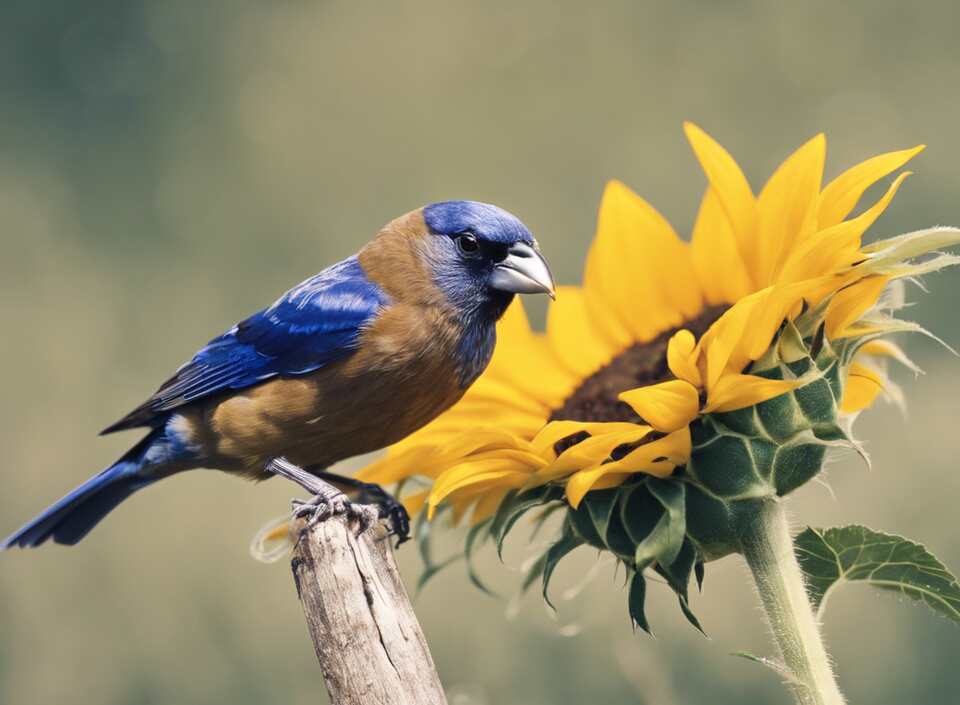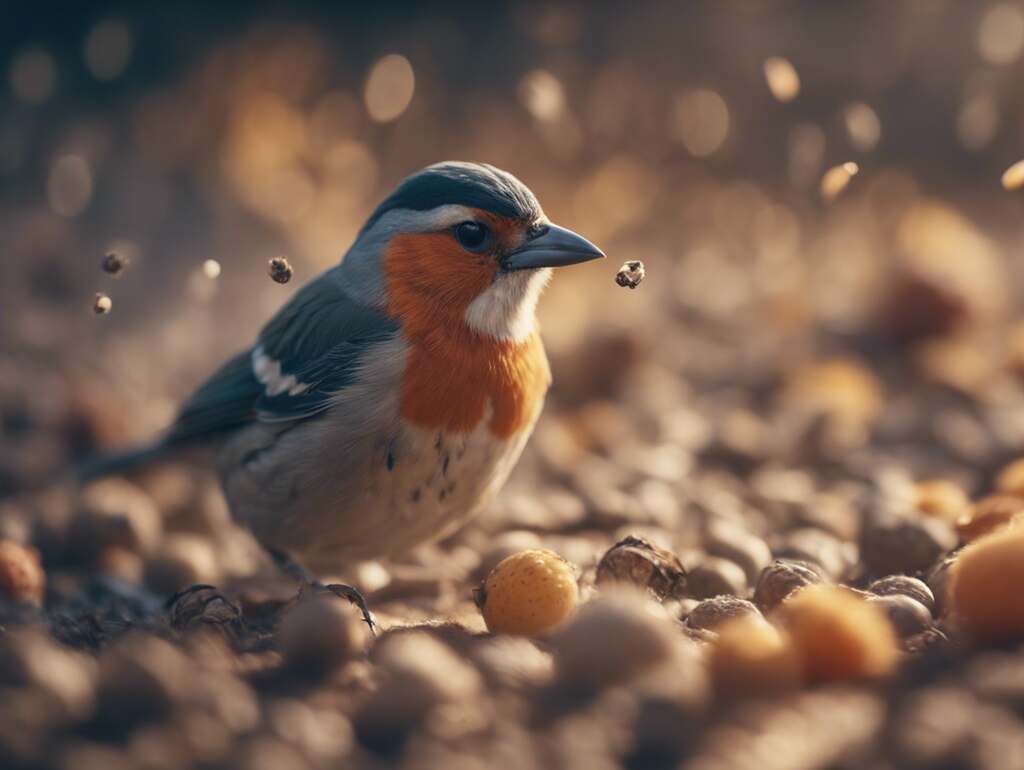Welcome to our exploration of the fascinating world of avian feeding habits! In this guide, we’ll delve into the question: “How Do Birds Eat Seeds?” From specialized beaks to unique feeding techniques, we’ll uncover the secrets behind this essential aspect of bird behavior.
Table of Contents
Bird Feeding Habits: How Do Birds Eat Seeds?
Birds have fascinating feeding habits, and one of the most common ways they consume food is by eating seeds. Several bird species have evolved to include seeds as a significant part of their diet. From sparrows to finches, understanding how birds eat seeds provides insight into their behavior and biology.
Bird Feeding Adaptations for Seed Consumption
Birds have specialized adaptations that facilitate the consumption of seeds. Their beaks play a crucial role in seed-eating, with different species having beak shapes and sizes tailored to their dietary preferences. For example, finches have short, stout beaks that are adept at cracking open seeds, while sparrows have conical beaks suited for hulling seeds.
Seed-cracking Techniques
Birds employ various techniques to crack open seeds and access the nutritious kernel inside. Some species, like the European goldfinch, use their nimble feet to hold the seed in place while they use their beaks to extract the contents. Other birds, such as woodpeckers, have powerful beaks that can easily break through tough seed shells.
Swallowing Seeds Whole
While some birds crack open seeds to access the kernels inside, others have adapted to swallow seeds whole. Pigeons, for instance, are known to swallow seeds whole and have specialized digestive systems that can break down the tough outer seed coating to extract nutrients efficiently.
Benefits of Seed Consumption for Birds
Seeds are a rich source of essential nutrients for birds, including carbohydrates, fats, proteins, and vitamins. By including seeds in their diet, birds can meet their energy requirements and maintain optimal health. Additionally, seeds provide birds with the necessary nutrients for feather growth, helping them stay warm and maintain their ability to fly.
Seed Dispersal by Birds
Birds play a crucial role in seed dispersal through their feeding habits. As birds consume seeds, they inadvertently transport seeds to new locations. This process helps in plant reproduction and contributes to the biodiversity of ecosystems. Birds that consume fruits containing seeds assist in the dispersal of these seeds through their droppings, aiding in the germination of new plants.
Encouraging Seed-eating Birds in Your Garden
If you want to attract seed-eating birds to your garden, consider providing a variety of seeds in bird feeders. Sunflower seeds, millet, and nyjer seeds are popular choices among seed-eating birds. Ensure that the bird feeders are placed in safe locations away from predators but easily accessible to birds.
Understanding how birds eat seeds sheds light on their unique feeding adaptations and behavior. By providing seeds in your garden, you can create a welcoming environment for seed-eating birds and contribute to the diversity of bird species in your area. Observing birds consume seeds can be a rewarding experience, showcasing nature’s intricate balance and the interconnectedness between birds and plants in the ecosystem.

Benefits of Seed-Feeding Birds in Ecosystems
Birds play a crucial role in ecosystems by feeding on seeds. This activity not only benefits the birds themselves by providing essential nutrients but also has far-reaching positive impacts on the environment. Let’s explore the numerous benefits of seed-feeding birds in ecosystems.
Seed Dispersal
Birds are efficient seed dispersers as they consume seeds from various plants and then spread them across different locations through their droppings. This process helps in the regeneration of plant species in diverse habitats. By moving seeds to new areas, birds contribute to the growth and genetic diversity of plant populations, which is vital for ecosystem resilience.
Plant Pollination
In addition to seed dispersal, some seed-feeding birds also play a role in plant pollination. As they forage for seeds, these birds inadvertently transfer pollen from one flower to another, promoting cross-pollination and enhancing the reproductive success of plants. This mutualistic relationship between birds and plants is essential for the health and balance of ecosystems.
Pest Control
Certain seed-feeding birds, such as finches and sparrows, also help in controlling insect populations. By consuming seeds, these birds keep insect numbers in check, preventing pest outbreaks that can damage crops and native vegetation. This natural form of pest control reduces the need for harmful pesticides, promoting a more sustainable and eco-friendly ecosystem.
Nutrient Cycling
When seed-feeding birds eat seeds and digest them, they extract essential nutrients that are then returned to the environment through their droppings. These nutrients, including nitrogen and phosphorus, enrich the soil and promote plant growth. By cycling nutrients through their feeding habits, birds contribute to the overall health and fertility of the ecosystem.
Biodiversity Conservation
Seed-feeding birds play a crucial role in maintaining biodiversity within ecosystems. By feeding on a variety of plant species, these birds help prevent the dominance of any single plant species, promoting a rich and diverse landscape. This diversity is essential for supporting other wildlife species and ensuring the overall stability of the ecosystem.
Ecotourism and Education
The presence of seed-feeding birds in ecosystems also attracts birdwatchers and nature enthusiasts, leading to the development of ecotourism opportunities. Birdwatching tourism can bring economic benefits to local communities and raise awareness about the importance of preserving natural habitats. Additionally, observing seed-feeding birds in their natural environment can provide valuable educational experiences for people of all ages.
Seed-feeding birds play a multifaceted role in ecosystems, benefiting plants, insects, soil, biodiversity, and even human society. By understanding and appreciating the significance of these birds in the natural world, we can work towards conserving their habitats and protecting the delicate balance of our ecosystems.
Conclusion
Birds have evolved fascinating feeding habits over time, especially when it comes to consuming seeds. Their beaks are specialized tools that help them crack open shells, husks, or tough coatings to access the vital nutrients inside. By understanding how birds eat seeds, we gain insight into their ecological role and importance in maintaining a balanced ecosystem.
The benefits of seed-feeding birds in ecosystems are manifold. These avian species play a crucial role in seed dispersal, helping to regenerate forests and other plant communities. As birds forage for seeds, they unintentionally scatter them across vast distances through their droppings. This process contributes to the growth and diversity of flora in different habitats, aiding in the restoration of degraded lands and promoting biodiversity.
Additionally, seed-feeding birds help control insect populations by preying on insects that may otherwise damage crops or overpopulate certain plant species. This natural form of pest control reduces the need for harmful chemical pesticides, thereby benefiting both the environment and agricultural practices. Moreover, birds that consume seeds are essential pollinators, facilitating the reproduction of various plant species and ensuring the continuation of crucial ecosystems.
The feeding habits of birds, particularly their consumption of seeds, are intricately linked to the overall health and functioning of ecosystems. These feathered creatures act as seed dispersers, pest controllers, and pollinators, playing a vital role in maintaining ecological balance. By appreciating and protecting seed-feeding birds, we can support the sustainability of natural environments and foster a healthier planet for future generations.



